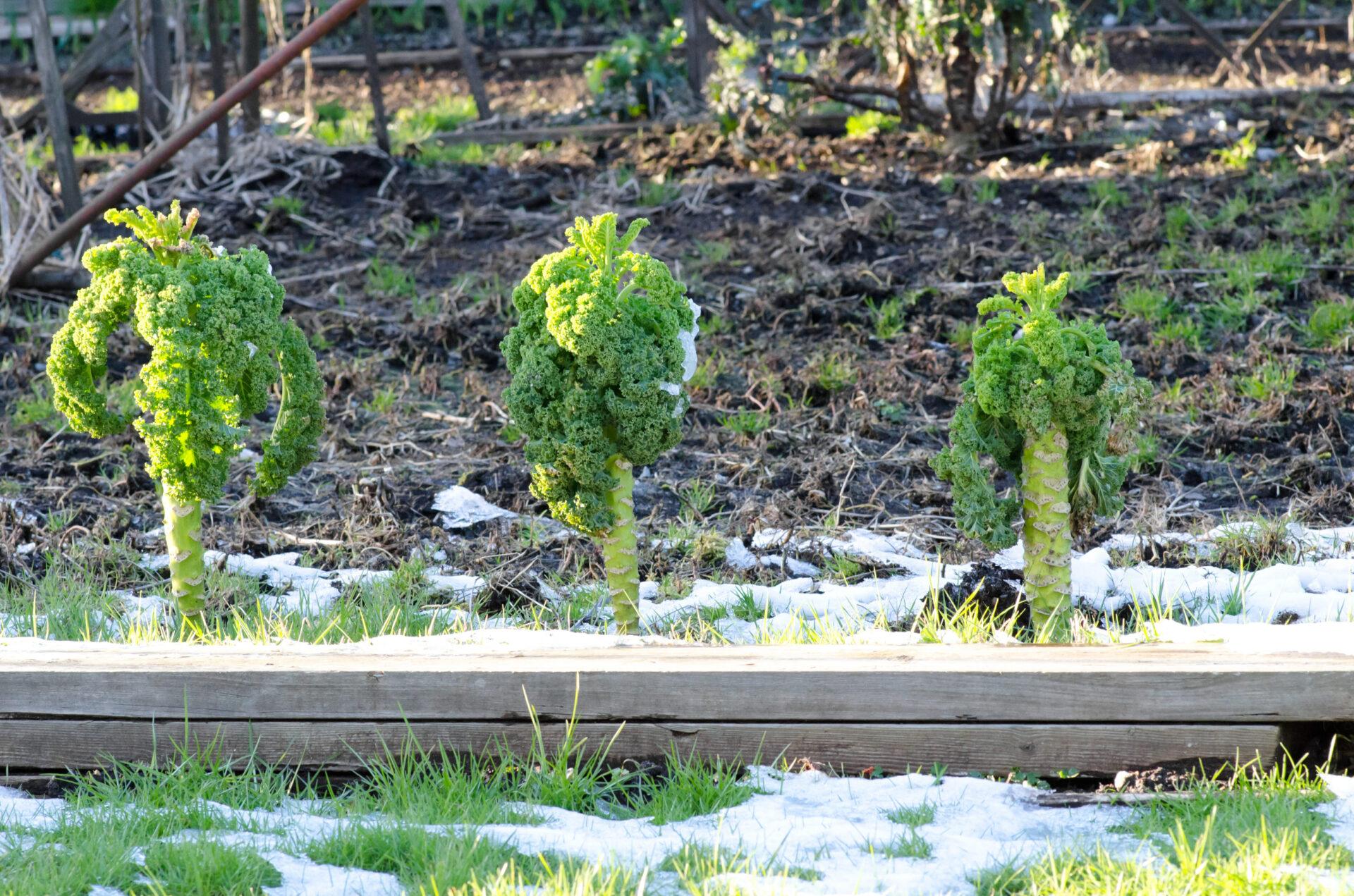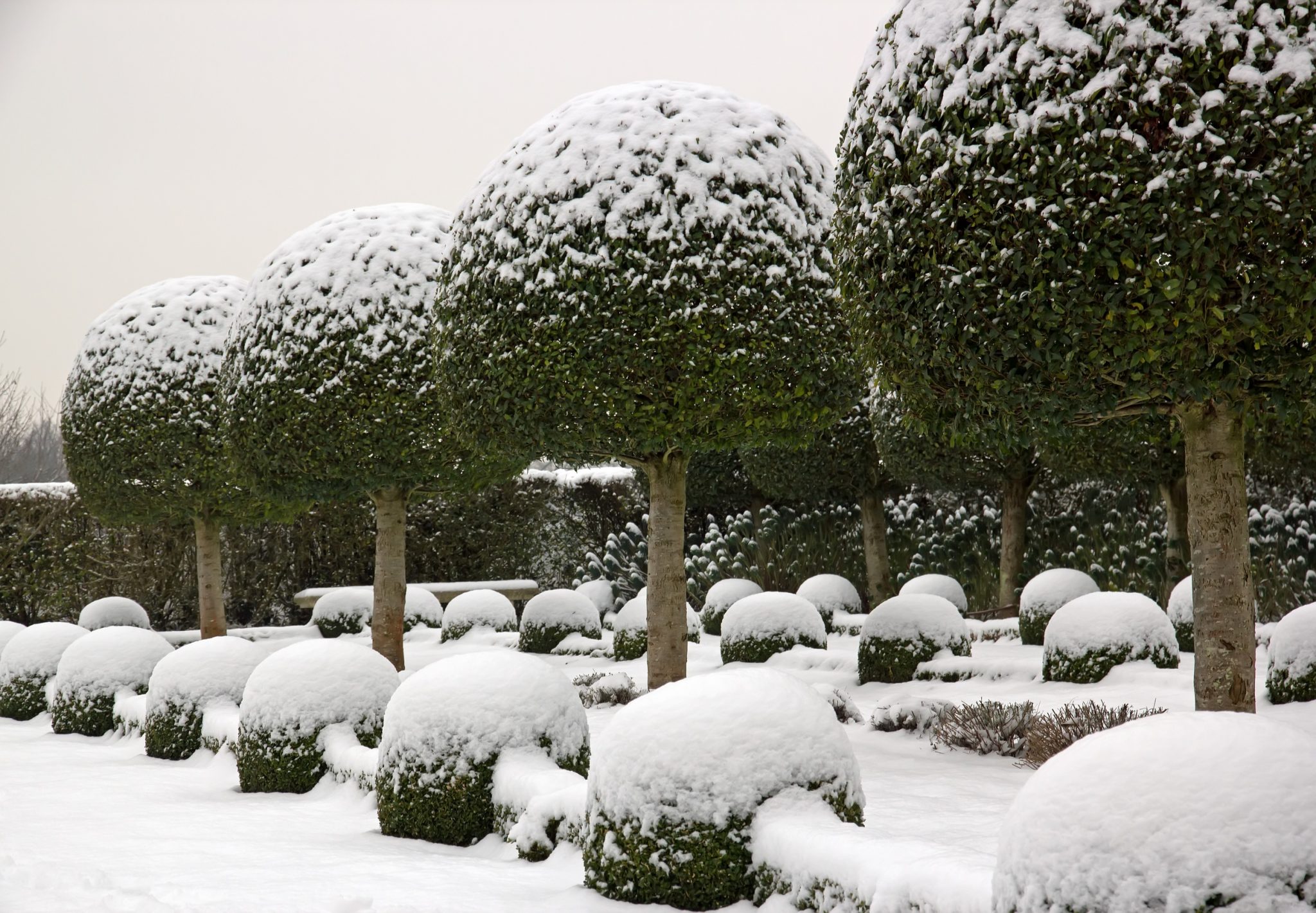Grow Winter Veggies: Top Picks for Cold Gardens

Are you ready to transform your garden into a winter wonderland of fresh produce? Imagine stepping out into the crisp air, snowflakes gently falling, and plucking vibrant, nutritious vegetables from your very own cold-hardy garden. Winter gardening is not just a possibility; it's a delightful reality. Let's dive into the world of seasonal gardening and discover the top vegetables that thrive in winter gardens.
What Vegetables Grow Well in Winter Gardens?
Winter gardening is all about selecting the right crops. Cold-hardy vegetables are the stars of the show, thriving in chilly temperatures and even surviving light frosts. These resilient plants not only add a splash of color to your garden but also provide a bountiful harvest during the leaner months.
Top Picks for Cold-Hardy Vegetables
Kale: The Winter Warrior
Kale is a true winter warrior, becoming sweeter and more tender after a frost. This leafy green is packed with nutrients and adds a vibrant pop of color to your garden. Plant kale in late summer or early fall for a winter harvest. It's a versatile vegetable that can be used in salads, soups, and smoothies.
Spinach: The Frost-Tolerant Favorite
Spinach is another frost-tolerant crop that thrives in cooler temperatures. This leafy green is rich in iron and vitamins, making it a nutritional powerhouse. Sow spinach seeds in late summer or early fall for a winter harvest. It's perfect for salads, sandwiches, and cooked dishes.
Carrots: The Root of Winter Gardens
Carrots are a staple in winter gardens. These root vegetables are not only delicious but also packed with vitamins and antioxidants. Plant carrot seeds in late summer or early fall for a winter harvest. Carrots are versatile and can be eaten raw, cooked, or juiced.
Brussels Sprouts: The Mini Cabbages
Brussels sprouts are mini cabbages that grow on a stalk. They are cold-hardy and become sweeter after a frost. Plant Brussels sprouts in late summer or early fall for a winter harvest. These tiny vegetables are perfect for roasting, steaming, or adding to stir-fries.
Broccoli: The Nutrient-Packed Powerhouse
Broccoli is a nutrient-packed powerhouse that thrives in cooler temperatures. This cruciferous vegetable is rich in vitamins and antioxidants. Plant broccoli in late summer or early fall for a winter harvest. It's versatile and can be eaten raw, cooked, or added to soups and stir-fries.
Tips for Successful Winter Planting
Timing is Everything
Timing is crucial when it comes to winter planting. Most cold-hardy vegetables should be planted in late summer or early fall. This gives them enough time to establish before the first frost. Check the seed packet for the specific planting dates for your region.
Soil Preparation
Preparing your soil is essential for a successful winter harvest. Add plenty of organic matter to your soil to improve its structure and fertility. This will help your plants grow strong and healthy.
Mulching for Protection
Mulching is a great way to protect your plants from the cold. A layer of organic mulch, such as straw or leaves, can help insulate the soil and retain moisture. This will keep your plants warm and hydrated during the winter months.
The Joy of Winter Harvest
There's something incredibly satisfying about harvesting fresh vegetables from your garden in the middle of winter. Not only does it provide a sense of accomplishment, but it also ensures that you have access to fresh, nutritious produce all year round.
Conclusion
Winter gardening is a rewarding experience that allows you to enjoy fresh produce even in the coldest months. By choosing the right cold-hardy vegetables and following some simple tips, you can create a thriving winter garden. So, why not give it a try? Embrace the chill and reap the benefits of seasonal gardening.
FAQs
What are the best vegetables to grow in winter? The best vegetables to grow in winter include kale, spinach, carrots, Brussels sprouts, and broccoli. These cold-hardy vegetables thrive in cooler temperatures and can survive light frosts.
When should I plant my winter garden? Most cold-hardy vegetables should be planted in late summer or early fall. This gives them enough time to establish before the first frost. Check the seed packet for the specific planting dates for your region.
How do I protect my winter garden from the cold? Mulching is a great way to protect your plants from the cold. A layer of organic mulch, such as straw or leaves, can help insulate the soil and retain moisture. This will keep your plants warm and hydrated during the winter months.
What are the benefits of winter gardening? Winter gardening provides access to fresh, nutritious produce all year round. It also offers a sense of accomplishment and can be a rewarding hobby.
Can I grow vegetables in the snow? Some cold-hardy vegetables, such as kale and spinach, can survive light snow. However, it's important to protect your plants from heavy snowfall to prevent damage. A simple cold frame or row cover can provide the necessary protection.


For more information on winter gardening, check out these authoritative resources:
Happy gardening!
0 Response to "Grow Winter Veggies: Top Picks for Cold Gardens"
Post a Comment